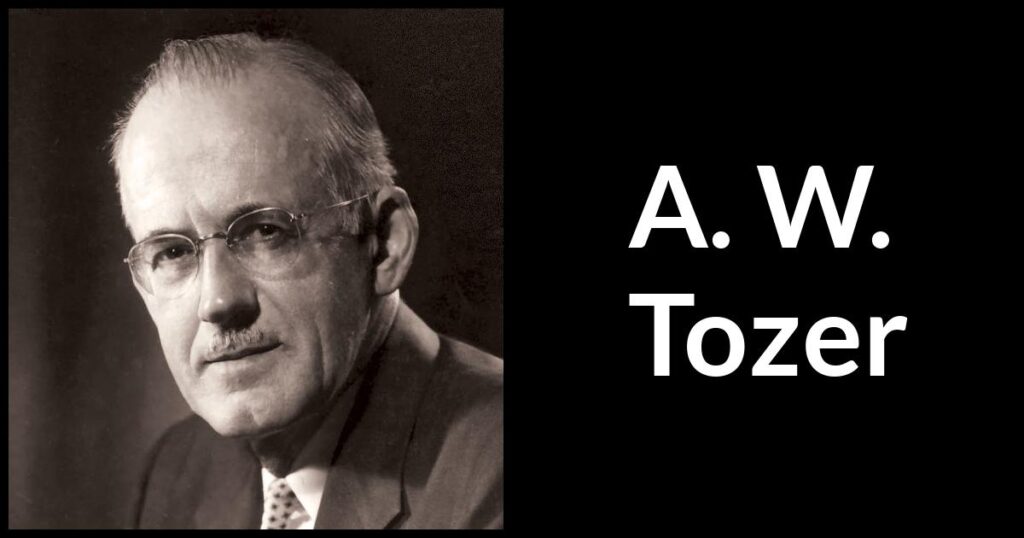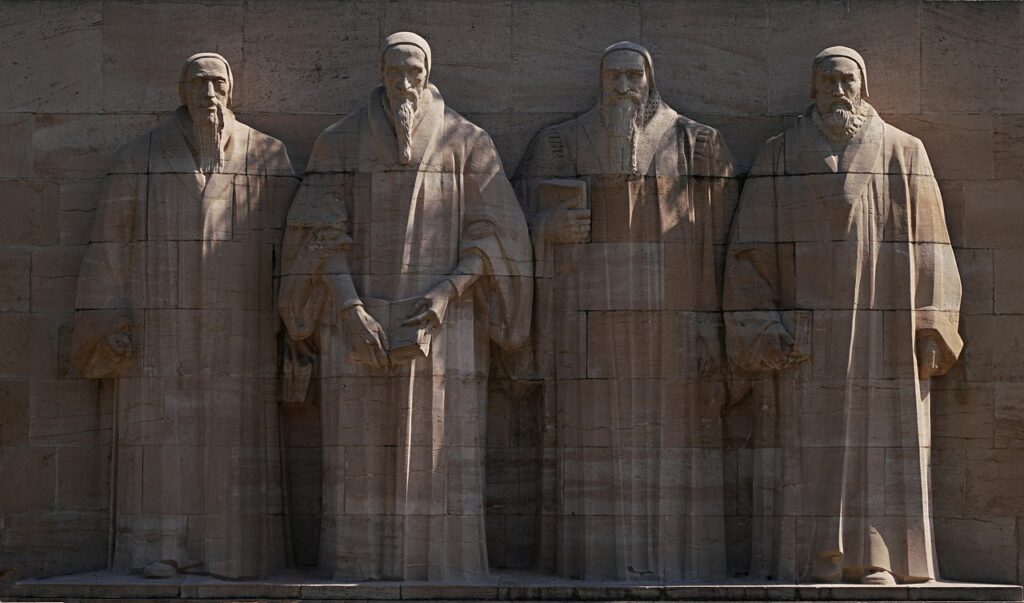
A.W. Tozer was a prominent Christian author and theologian known for his deep spirituality and thought-provoking insights. Born in 1897, Tozer became well-known for his writings on the nature of God, the importance of personal faith, and the complexities of Christian doctrine. Among the many theological debates of his time was Calvinism, a system of belief that emphasizes God’s sovereignty in salvation. This article explores Tozer’s views on Calvinism and how they shaped his understanding of faith and spiritual life.
The Background of A.W. Tozer
A.W. Tozer was not only a theologian but also a pastor, writer, and spiritual mentor. He served as a pastor in the Christian and Missionary Alliance denomination for many years. His writings reflect his deep-seated belief in the necessity of a personal relationship with God. Tozer authored many influential books, including “The Pursuit of God” and “The Knowledge of the Holy.” His works often emphasized the need for a direct encounter with God rather than merely adhering to doctrinal systems.
Tozer’s background and experiences shaped his views on many theological matters, including Calvinism. He often critiqued the cold intellectualism he perceived in some theological circles and advocated for a more heartfelt faith. This perspective influenced his understanding of Calvinism and its implications on personal faith.
Understanding Calvinism
Calvinism is a theological framework founded by John Calvin in the 16th century. It emphasizes the sovereignty of God, particularly regarding salvation. Key tenets of Calvinism include the doctrines of total depravity, unconditional election, limited atonement, irresistible grace, and perseverance of the saints. These doctrines collectively form what is known as the “Five Points of Calvinism,” often summarized by the acronym TULIP.
The central idea of Calvinism is that God’s grace is irresistible and that He has predetermined who will be saved. This doctrine has sparked considerable debate among Christians, with some embracing it wholeheartedly and others rejecting it in favor of free will and human agency in salvation. Understanding Tozer’s views on Calvinism requires a closer look at his theological beliefs and how they intersect with Calvinist thought.
Tozer’s Critique of Calvinism

A.W. Tozer was critical of certain aspects of Calvinism, particularly its implications on human responsibility and the nature of God’s love. He believed that emphasizing God’s sovereignty could lead to a diminished view of humanity’s role in responding to God’s grace. Tozer argued that while God is indeed sovereign, His love and desire for a relationship with humanity cannot be overlooked.
Tozer often emphasized the importance of personal faith and the necessity of a heartfelt response to God’s call. He believed that a rigid adherence to Calvinist doctrines could result in a lack of passion for evangelism and spiritual growth. Tozer’s own experiences led him to view faith as a dynamic relationship with God, rather than a set of theological propositions to be agreed upon or debated.
The Importance of Free Will
One of Tozer’s significant concerns with Calvinism was its treatment of human free will. He believed that while God is sovereign, He has granted humans the ability to choose to follow Him. Tozer maintained that this free will is essential for a genuine relationship with God. He argued that love cannot be coerced and that true faith requires a personal choice to accept God’s grace.
Tozer’s emphasis on free will aligns with the Arminian perspective, which argues that individuals have the capacity to respond to God’s offer of salvation. He believed that the tension between divine sovereignty and human free will should not be resolved by dismissing one or the other but rather embraced as part of the mystery of God’s nature.
God’s Love and Grace
Tozer’s understanding of God’s love and grace also shaped his views on Calvinism. He often spoke about God’s love as being vast and inclusive, desiring a relationship with all people. This belief stands in contrast to the Calvinist perspective, which suggests that God’s love is particularly directed toward the elect. Tozer believed that God’s grace is available to everyone and that humans must actively respond to it.
He stressed that the Gospel is an invitation to all, urging believers to share the message of salvation without reservation. Tozer’s perspective on God’s grace highlights his desire to see Christians engage with the world around them and actively participate in bringing others into a relationship with God.
The Role of the Holy Spirit

In Tozer’s theology, the role of the Holy Spirit is vital for understanding salvation and spiritual growth. He emphasized that the Holy Spirit draws individuals to God, helping them recognize their need for salvation. While Calvinism teaches that the Holy Spirit irresistibly enables the elect to come to faith, Tozer focused on the Spirit’s role in inviting everyone to respond to God’s love.
Tozer believed that the Holy Spirit works in the hearts of all people, prompting them to seek God. This perspective aligns with his emphasis on the necessity of a personal response to God’s grace, showcasing his belief that the Holy Spirit’s work is not limited to a predetermined group but extends to every individual.
Tozer’s Call for a Relationship with God
Ultimately, A.W. Tozer’s critique of Calvinism stemmed from his overarching emphasis on the need for a personal relationship with God. He believed that doctrines should serve to enhance one’s faith rather than constrain it. Tozer sought to inspire believers to cultivate a deeper relationship with God through prayer, worship, and the study of Scripture.
His writings consistently called for a more profound experience of God’s presence, encouraging Christians not to settle for mere intellectual assent to doctrine. Tozer viewed knowing God as the ultimate goal of the Christian life, advocating for a faith that is vibrant, passionate, and deeply personal.
Conclusion
A.W. Tozer’s views on Calvinism reflect his commitment to a heartfelt and personal faith. While acknowledging God’s sovereignty, he emphasized the importance of human free will, God’s expansive love, and the necessity of a relationship with the Holy Spirit. Tozer’s critique of certain aspects of Calvinism invites believers to consider the implications of their theological beliefs on their spiritual lives. His call for a more personal encounter with God remains relevant today, encouraging Christians to pursue a vibrant faith that transcends mere doctrinal agreement.
Tozer’s writings challenge believers to engage with their faith authentically, recognizing that theology is not just an academic exercise but a matter of the heart. By fostering a deeper relationship with God, believers can experience the fullness of His love and grace, regardless of their theological background.
FAQs
What was A.W. Tozer’s primary focus in his writings?
Tozer primarily focused on the necessity of a personal relationship with God, emphasizing the importance of experiencing God’s presence in everyday life rather than merely adhering to doctrinal systems.
How did Tozer view the relationship between God’s sovereignty and human free will?
Tozer believed that while God is sovereign, He has granted humans the ability to choose to follow Him. He emphasized that true love and faith require personal choice and response.
What did Tozer believe about God’s love?
Tozer believed that God’s love is vast and inclusive, desiring a relationship with all people. He argued that God’s grace is available to everyone, and individuals must actively respond to it.
How did Tozer’s views on Calvinism differ from traditional Calvinist beliefs?
Tozer’s views differed in that he emphasized human free will, the universal availability of God’s grace, and the importance of a personal relationship with God, contrasting with Calvinism’s focus on the elect.
Why is A.W. Tozer considered an influential theologian?
Tozer is considered influential due to his profound insights on spirituality, prayer, and the nature of God, as well as his ability to challenge believers to pursue a deeper, more authentic faith.






